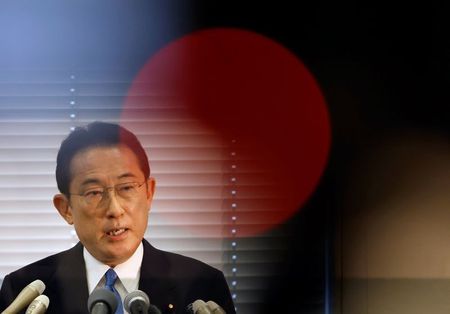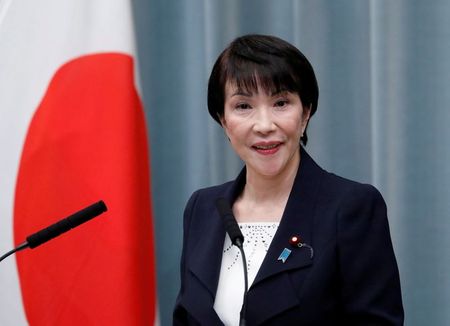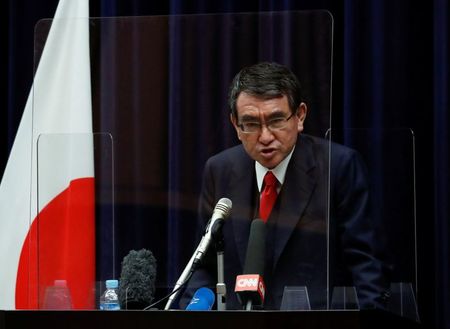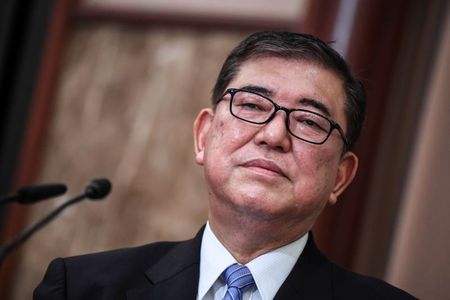
Factbox-Possible candidates to become Japan’s next prime minister

-Japanese Prime Minister Yoshihide Suga, his support ratings in tatters ahead of a general election, said on Friday he would step down https://www.reuters.com/world/asia-pacific/japans-ruling-party-execs-meet-pm-suga-struggles-ahead-election-2021-09-03/?taid=61319eef283ded000140adea&utm_campaign=trueAnthem:+Tren, meaning the ruling Liberal Democratic Party (LDP) will choose a new leader, who will become prime minister.
Here are details about some people who might be candidates for the top job.
FUMIO KISHIDA, 64
A former foreign minister, Kishida had been considered the likely heir of Shinzo Abe, who resigned last September, but the low-key lawmaker from Hiroshima typically ranks low in voter surveys. He came in second in a party leadership vote last year.
Kishida hails from one of the LDP’s more dovish factions and is seen as lukewarm about revising the pacifist constitution.
Announcing his candidacy, Kishida called for reducing income disparities and pledged support to the economically vulnerable, such as workers in non-regular employment and women, in contrast with Suga, who has stressed self-reliance.
This week, Kishida said an economic stimulus package worth “tens of trillions of yen” was needed to combat the coronavirus. He also said Japan must maintain ultra-low interest rates to support the pandemic-hit economy.
He has said he was running to show the LDP “listens to the people and offers broad choices, and to protect our nation’s democracy”, a comment seen as criticism of Suga’s governing style.
SANAE TAKAICHI, 60
An Abe disciple and former internal affairs minister, Takaichi has made clear her desire to become Japan’s first female premier, and said she would introduce policies to fend off China’s technology threat and help strengthen the economy.
Takaichi said she wanted to work on issues left unresolved by previous administrations, such as achieving 2% inflation, and introducing legislation “that prevents the leakage of sensitive information to China”.
She said an extra budget needed to be compiled as soon as possible to bolster Japan’s medical system, which is under strain because of the pandemic.
A member of the party’s most conservative wing, she often visits the Yasukuni Shrine, a memorial to Japan’s war dead. Such visits by Japanese leaders infuriate old wartime foes such as China and South Korea. She has also opposed allowing married couples to keep separate surnames, to the disappointment of promoters of women’s rights.
It is not clear whether she will obtain the 20 lawmaker backers needed to run in the leadership election.
TARO KONO, 58
In charge of Japan’s rocky vaccination rollout, Kono ranks high on the list of voters want to see succeed Suga.
Educated at Georgetown University and a fluent English speaker, the social-media-savvy Kono has served as foreign and defence minister and holds the portfolio for administrative reform.
Kono has a reputation as a maverick but toed the line on key Abe policies. He has differentiated his conservative stances from those of his father, former chief cabinet secretary Yohei Kono, who authored a landmark 1993 apology to “comfort women”, a euphemism for women forced to work in Japan’s wartime military brothels.
A member of powerful Finance Minister Taro Aso’s faction, Kono intends to run, broadcaster TBS said on Friday without citing sources, although he has yet to announce his intentions.
“As for my next steps, I would like to make my decision after discussing this carefully with my fellow lawmakers and colleagues,” he told reporters on Friday evening.
SHIGERU ISHIBA, 64
A former defence minister, Ishiba regularly ranks high in voter surveys but is less popular with party MPs.
A soft-spoken security maven and rare LDP critic of Abe when the latter was in office, Ishiba has also held portfolios for agriculture and reviving local economies.
He defeated Abe in the first round of a party poll in 2012 thanks to strong grassroots support but lost in the second round when only MPs could vote. He has since lost two more times.
He has deflected questions on whether he would run for the LDP leadership race this time.
Suga’s withdrawal from the race “completely changes the scene, so now we have to think about our next steps” he told Nippon TV on Friday, adding: “I will give it a lot of thought.”
Ishiba has criticised the Bank of Japan’s ultra-low interest rates for hurting regional banks and called for higher public work spending to remedy growing inequality.
SEIKO NODA, 60
An Abe critic, Noda, a former internal affairs minister, has also held the portfolio for women’s empowerment and is in favour of allowing married couples to keep separate names.
She wanted to challenge Abe for the LDP presidency in 2015 but fell short of the 20 backers needed to run.
Noda has told LDP lawmakers that she wants to run in the party leadership race, according to broadcaster NHK.
(Writing by Ju-min Park and Linda Sieg; Editing by Gerry Doyle, Robert Birsel)




















POST COMMENTS (0)